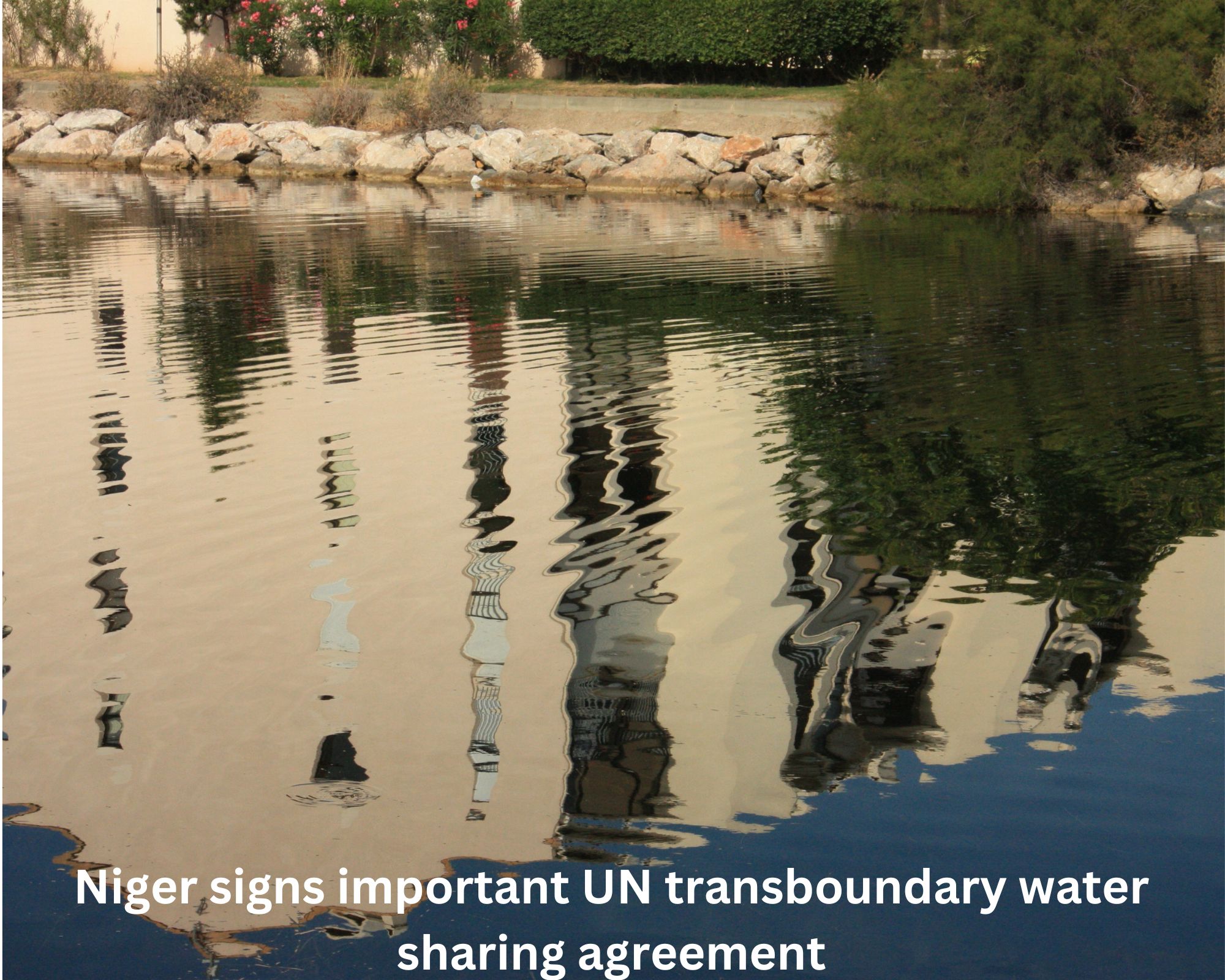Summary:
-
The event occurs before the UN water summit, which will take place in New York the following month and bring together nations to discuss how to resolve conflicts brought on by water scarcity.
-
Decisive action even though Lake Chad has lost more than 90% of its water since 1963, Niger’s decision to join the Water Convention is a “decisive step” for the area because it gives it complete legal protection under the rules of the Convention.
-
According to the UNECE, millions of people whose livelihoods depend on rain-fed agriculture and cattle are threatened by water scarcity.
-
Nigeria is on the verge of joining the other signatories, Chad, Cameroon, and the Convention.
-
Since Niger shares 90% of its water resources with its neighbours, joining the pact is essential for Niger.
The event occurs before the UN water summit, which will take place in New York the following month and bring together nations to discuss how to resolve conflicts brought on by water scarcity.
Decisive action
Even though Lake Chad has lost more than 90% of its water since 1963, Niger’s decision to join the Water Convention is a “decisive step” for the area because it gives it complete legal protection under the rules of the Convention.
The UN agency in charge of putting the Convention into action, UNECE, says that all parties to the agreement now have an essential chance to progress together on water access, sanitation, hygiene, and health.
The United Nations Economic Commission for Europe (UNECE) says that a lack of water threatens the lives of millions of people whose jobs depend on rain-fed agriculture and cattle. The region has become less stable in the last few decades because of more land, water, and food competition. This is especially true in the area around Lake Chad and the Niger River basin.
Nigeria is on the verge of joining the other signatories, Chad, Cameroon, and the Convention.
Since Niger shares 90% of its water resources with its neighbours, joining the pact is essential for Niger.
Rising water needs
As the country’s population grows and urbanization, agriculture, and industrialization put more pressure on a shared resource, the landlocked country of West Africa will have to deal with many more water-related problems shortly.
The UN has already warned that the drying up of Lake Chad could have severe effects on the 30 million people who live nearby because of competition for water. This could lead to forced migration and violence.
Low food supplies
UNECE says pastureland damage has led to a lack of animal feed, cattle, and biodiversity, and fish production has dropped by 60%.
Adamou Mahaman, Niger’s Minister of Water and Sanitation, said that the Water Convention is a legal framework whose implementation, regional frameworks, and national instruments will help our country’s efforts at transboundary cooperation on our shared basins, preventing conflicts, promoting peace, and connecting sub-regions.
The 2030 Agenda for Sustainable Development says that the Water Convention, which is a legally binding international agreement, requires countries to prevent, control, and reduce the effects of their water use across national borders and to use transboundary waters in a fair and reasonable way.

